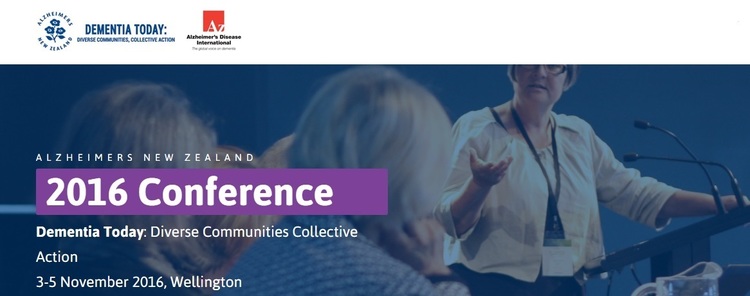| Dementia Today: Diverse Communities, Collective Action Alzheimers NZ Biennial Conference 19th Asia Pacific Conference of Alzheimer's Disease International |
Call for Abstracts
Share your insight, knowledge and ideas
Dementia Today: Diverse Communities, Collective Action is the premier conference for dementia in New Zealand. Submit an abstract for this conference on dementia on the conference theme of:
Diverse Communities, Collective Action
Abstracts are up to 250 words in length and if accepted, can be followed up with either an oral or poster presentation at this exciting conference.
Submissions close on Thursday 30 June 2016, and acceptance/non-acceptance will be advised by Sunday 31 July.
Abstract themes
We invite abstracts reflecting the theme and aims of the conference:
· Diverse Communities: Drawing on our unique position in the Asia Pacific region to discover how people with dementia are supported in their local communities. Reflecting the diversity of our ethnicities, economies, cultures including how we live our lives, who we partner with and expressions of faith and spirituality.
· Collective Action: Learning about the science, research/evidence that supports innovation and change in how we support people with dementia. To grow our knowledge of dementia and brain health from prevention to cure.
· Living well with dementia: To hear the voice of people with dementia through sharing stories and perspectives from people with dementia and their care partners. Also, dementia service providers and support agencies to share their insights and action on enabling people to live well with dementia.
Presentation style
Oral presentations are scheduled for 20 minutes followed by 10 minutes of question and answer. Please indicate whether you would like to present a poster if you are not chosen for a presentation.
If your abstract is accepted as a poster then you are required to produce a poster as per the guidelines on the abstract submission page of the online portal.
How to submit an abstract
1. With your abstract of up to 250 words, please submit a short bio (up to 100 words), and if possible a photo of yourself. You will be asked to select one of three streams for your abstract: Diverse communities, collective actions or Living well with dementia.
2. Create a user profile. If you are a first time submitter, click Login and then select New User to create your profile.
3. Then add one or more abstracts to your profile.
4. On completion of your submission you will receive an email confirming that your abstract has been received.
Please contact us directly if you require help at alzheimers@verve.co.nz
Updating your details
If you are an existing user and wish to edit your personal details, click Login and My Profile. Once you have updated your details please click Save at the bottom of the page.
Conditions of submission
· The Programme Committee may contact authors or their nominated referees as part of the review process.
· A condition of acceptance is that at least one author presents at the conference.
· Presenters must register to attend for at least one day of the conference. Presenters are responsible for their own travel, accommodation and registration expenses. Similarly, no speaker fee is paid to authors or presenters.
· It is the responsibility of the submitting author to ensure the accuracy of the content, spelling, grammar and formatting of the abstract, as it will be published as it is submitted.
· By submitting an abstract you also grant the Committee permission to publish the abstract in the conference proceedings in hard copy and/or electronic format.
Evaluation Criteria
All abstracts are subject to review by the Programming Committee.
In evaluating abstracts the reviewers will be mindful of the following criteria:
· Abstracts are in plain language, free of specialist jargon, unless it is clearly appropriate.
· The degree to which the substance of the abstract contributes to the conference theme(s).
· Innovation and originality or application of existing ideas in ways that provide new insights and progress the field.
· If a research project or audit is presented you will also need to specify aims, methods and findings. Vague abstracts that do not make it clear what the main finding is will not be accepted.
